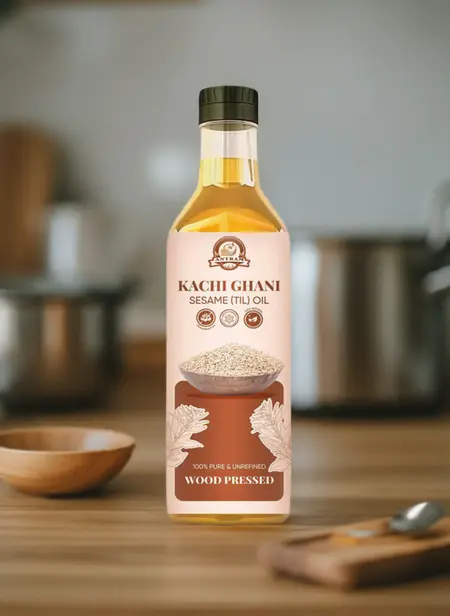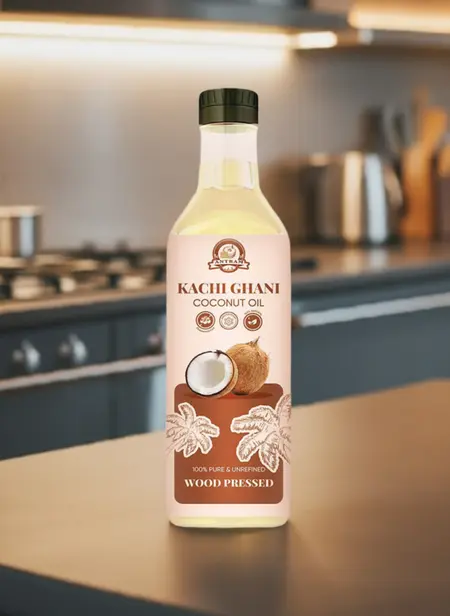Introduction
Atta, or flour, is a crucial component of many dishes in Indian households. Whether it’s the soft rotis, fluffy parathas, or crispy puris, atta plays a major role in almost every meal. However, with an increased focus on healthy living, more people are shifting from traditional wheat flour to healthier alternatives. These flours, known as healthy atta, offer a range of benefits that make them perfect for anyone looking to boost their diet with nutritious ingredients.
The Importance of Atta in Indian Cuisine
Indian cuisine revolves around grains and flours. Wheat flour, particularly, is a household staple due to its versatility and ability to form the base of many recipes. However, not all atta is created equal, and some variants pack more nutritional benefits than others.
Why Healthy Atta Matters
As we move toward a more health-conscious world, the types of flour we consume become increasingly important. Healthy atta varieties contain more fiber, vitamins, minerals, and often fewer calories, making them ideal for people who want to maintain a balanced diet without compromising on taste.
What is Healthy Atta?
Healthy atta refers to flour made from whole grains or a combination of grains that offer superior nutritional value compared to regular refined wheat flour. These grains retain their bran, germ, and endosperm, making them rich in fiber, protein, and essential nutrients.
Traditional vs. Modern Variants
While traditional whole wheat atta has long been considered healthy, modern varieties such as multigrain atta, ragi atta, and quinoa atta take nutrition to the next level. These newer options offer a broader range of benefits, catering to specific dietary needs like gluten intolerance, iron deficiency, and calcium requirements.
Types of Healthy Atta
1. Whole Wheat Atta
Whole wheat atta is unrefined and contains all three parts of the grain: bran, germ, and endosperm. It is high in fiber and provides essential nutrients like magnesium, iron, and vitamin B.
2. Multigrain Atta
Multigrain atta combines several grains, such as wheat, oats, maize, and barley. This variety is excellent for boosting fiber, protein, and micronutrient intake, supporting overall health.
3. Jowar Atta
Jowar, or sorghum, is a gluten-free grain that is high in antioxidants, fiber, and protein. It’s a perfect option for those with gluten sensitivities or those looking to manage their weight.
4. Bajra Atta
Bajra, or pearl millet, is rich in fiber and iron. It helps regulate blood sugar levels, making it an excellent choice for diabetics.
5. Ragi Atta
Ragi, or finger millet, is known for its high calcium content, making it great for bone health. It also offers significant amounts of fiber, aiding digestion and promoting weight loss.
6. Amaranth Atta
Amaranth is a protein-rich, gluten-free flour that contains a good amount of iron and magnesium. It’s a popular choice for those seeking a high-protein, plant-based alternative.
7. Quinoa Atta
Quinoa flour is another gluten-free option that is high in protein and contains all nine essential amino acids. It’s great for building muscle and supporting overall health.
Benefits of Using Healthy Atta
High Fiber Content
Healthy attas are packed with fiber, which helps improve digestion, maintain healthy cholesterol levels, and regulate blood sugar.
Rich in Nutrients
Unlike refined flour, healthy atta retains its natural nutrients, including vitamins, minerals, and antioxidants.
Promotes Weight Loss
High-fiber atta keeps you fuller for longer, reducing hunger pangs and helping in weight management.
Helps Manage Blood Sugar Levels
The slow digestion of whole grains helps in stabilizing blood sugar, making these flours ideal for diabetics or anyone looking to prevent blood sugar spikes.
Whole Wheat Atta: The Classic Choice
Whole wheat atta has been a staple for centuries. Its unrefined nature makes it a healthier alternative to white flour. Loaded with fiber and essential nutrients, it’s perfect for everyday use.
Multigrain Atta: A Powerhouse of Nutrients
Multigrain atta combines the benefits of various grains. It’s richer in nutrients than single-grain flours, offering a broader range of health benefits.
Conclusion
Switching to healthy atta is a small change that can lead to significant health benefits. By incorporating different types of healthy flour into your diet, you can ensure you get a variety of nutrients, improve digestion, and manage your weight more effectively.





